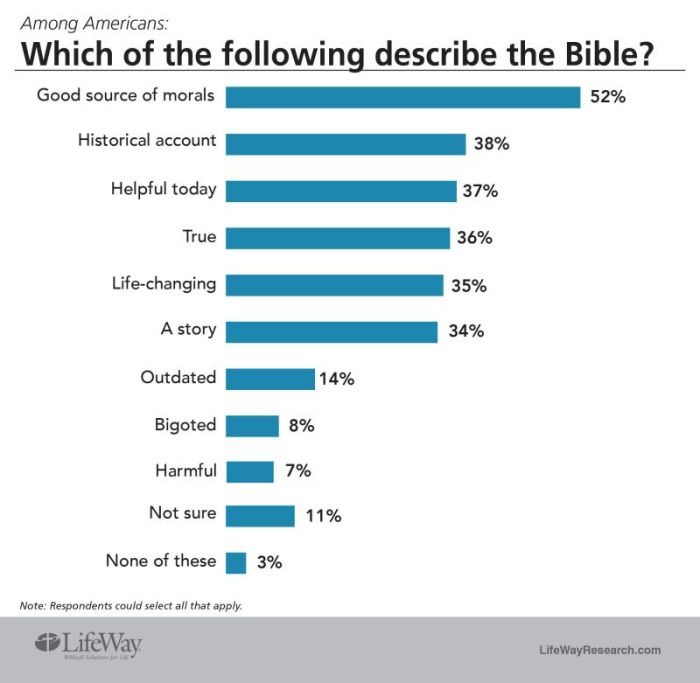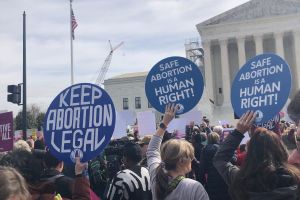1 in 5 Americans Read Entire Bible, Most Call It 'Good Source of Morals': Poll
Only 20 percent of Americans have read the Bible in its entirety, according to a new survey which also found that most Americans have positive feelings toward it and would describe it as a "good source of morals."
LifeWay Research revealed that 10 percent of respondents read none of the Bible, 13 percent said they read only a few sentences, 30 percent said they knew of several passages or stories, 15 percent read at least half the Bible, and 12 percent read almost all of it. Overall, only 20 percent of the respondent said they read the entire Bible.
"Most Americans don't know first-hand the overall story of the Bible — because they rarely pick it up," said Scott McConnell, executive director of LifeWay Research.
"Even among worship attendees less than half read the Bible daily. The only time most Americans hear from the Bible is when someone else is reading it."
The small percentage of Americans who have read all the scriptures is not for a lack of Bibles, LifeWay pointed out, with close to nine out of 10 households owning a copy. The average household owns three Bibles.
Of those who read a little bit of the Bible each day, 49 percent were evangelicals while 16 percent were not evangelicals. As can be expected, those who attended church at least once a month were also more likely to read the Bible every day (39 percent), compared to those who attended less often (13 percent).
When asked to name the reasons why they don't read the Bible more often, 27 percent said that they simply don't prioritize it. Fifteen percent said that they don't have time to read it, and 13 percent argued they have already read enough of it.

Still, respondents had a largely positive view of the Bible. Over half, or 52 percent, called it a "good source of morals." A little bit over a third further described it as a "historical account," "helpful today," "true," and "life-changing."
Of the negative characteristics, 14 percent called the Holy Book "outdated," eight percent argued that it was "bigoted," and seven percent said that it was "harmful."
"Scripture describes itself as 'living and effective,' according to the book of Hebrews," McConnell noted. "Those who have a habit of reading through the Bible a little each day say they have experienced this helpful, life-changing quality. Those who approach the book differently tend to say the Bible is positive but much less personal."
Recent surveys have sought to measure what Americans believe about some of the central messages of the Bible. A Barna study released days before Easter earlier in April found that 93 percent believe that Jesus Christ was a real person who lived on Earth.
Also, 63 percent of U.S. adults said that they have made a commitment to Jesus that is still important in their lives today.
Another Barna report released this month said that a growing number of Americans (10 percent) identify as Christians and "love Jesus," but are not attending institutional churches.
The Lifeway poll was conducted Sep. 27 - Oct. 1, 2016, among 1,000 Americans with a 95 percent confidence that the sampling error does not exceed plus or minus 3.1 percent.





























